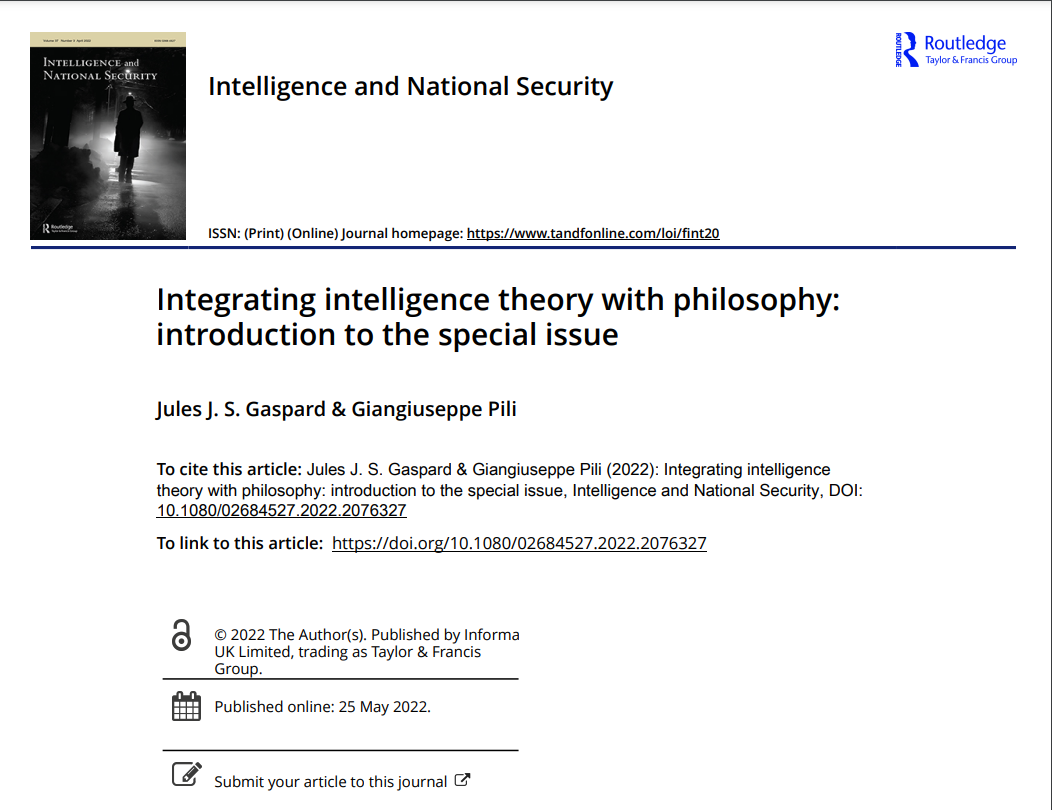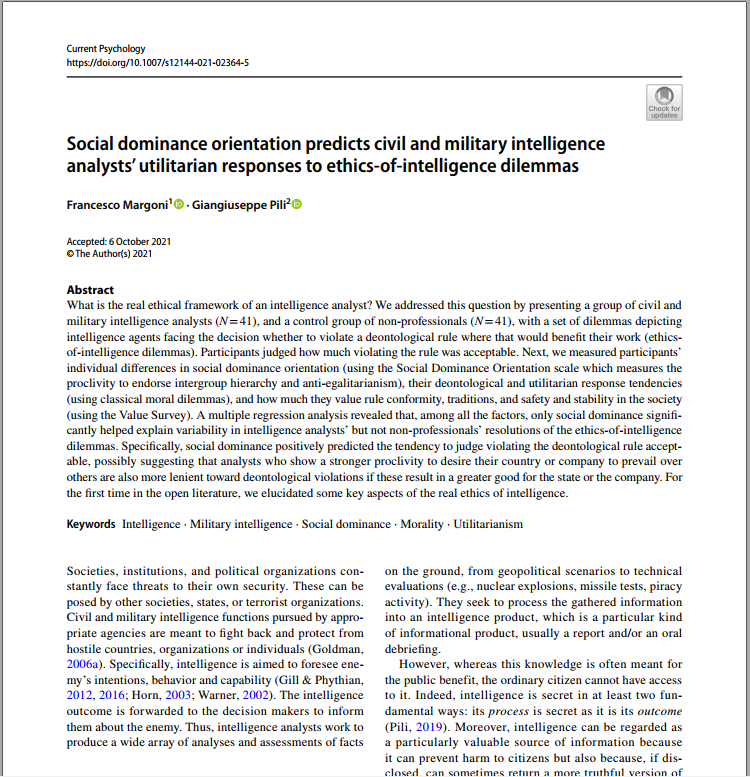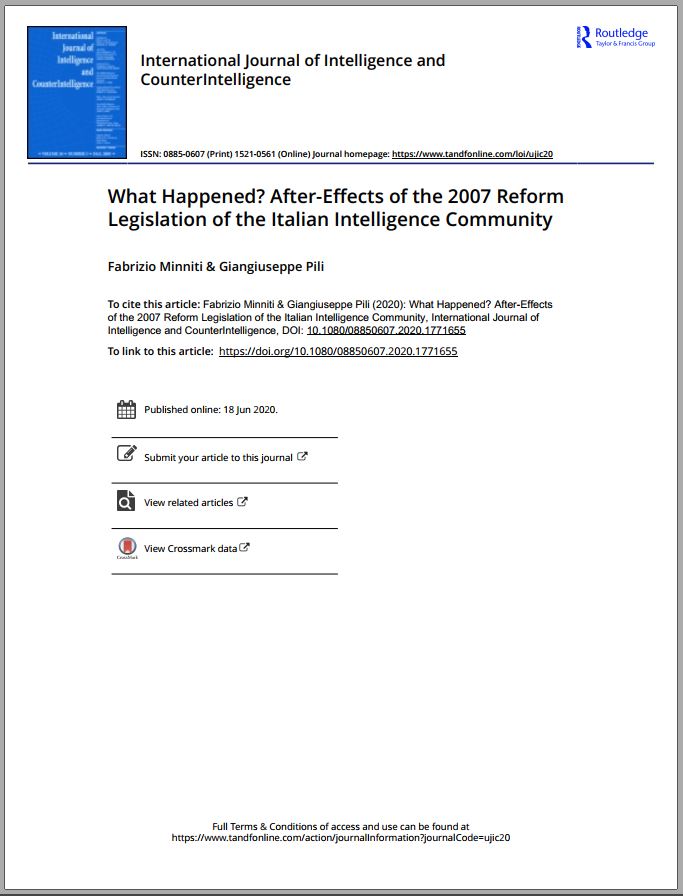
Giangiuseppe Pili, (2019), “Toward a Philosophical Definition of Intelligence“, The International Journal of Intelligence, Security, and Public Affairs, 21:2, 162-190, DOI: 10.1080/23800992.2019.1649113
It is with my great pleasure to announce my last issue in the International Journal of Intelligence, Security and Public Affairs!: Toward a philosophical definition of intelligence. This is my second paper in the journal and my third on the topic in a peer-reviewed journal (and a new one is coming, so keep in touch!). However, I am particularly proud of this scientific result, as far as the topic is one of the most relevant in the field, as it was defined by Mark Phythian and Peter Gill in one of their best papers. The two scholars stressed the importance of the definitional debate inside the intelligence studies literature. This paper tries to bring analytic philosophy to intelligence as state institution in order to give a new definition of intelligence. I want to thank two anonymous reviewers, who significantly helped me in improving the paper with their comments and suggestions.
What is intelligence? A short question, which is difficult to answer. In fact, there is no general agreement on the definition of intelligence. A good philosophical analysis starts with intuitions, which can be found in the literature. After the recollection of these intuitions and their discussion, it is necessary to add some rational justifications of them. I want to express a general definition of intelligence, whose formulation is indebted to a philosophical analytic approach that considers some different alternatives. Intelligence is a vague word and it has different meanings. In fact, the intelligence studies are so rich but they pose some particular philosophical problems. Philosophy defines complex and complicated words in a simple and coherent way. I want to defend a definition, which is philosophically consistent and meaningful for intelligence studies. Is this a good way to solve such a complex problem? As Ludwig Wittgenstein said: “The problems are solved, not by giving new information, but by arranging what we have always known. Philosophy is a battle against the bewitchment of our intelligence by means of language”.











